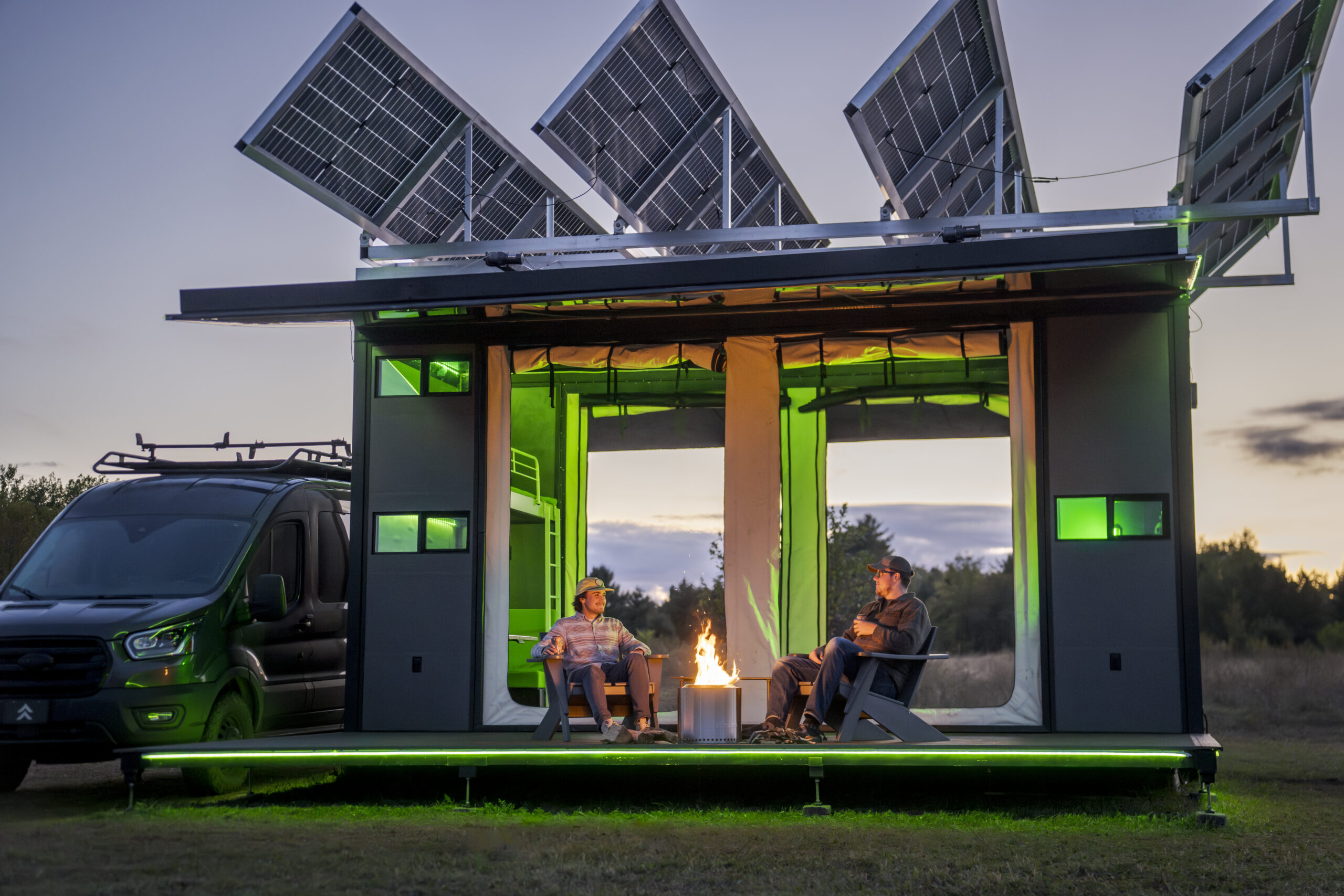Josef Hjelmaker, former chief innovation officer at THOR Industries and now the founder of Electric Outdoors, is leveraging decades of experience in consumer electronics and the outdoor sector to offer sustainable tools that simplify off-grid camping and recreational experiences.
Through his new venture, Electric Outdoors, Hjelmaker is introducing a mobile off-grid platform designed to support landowners and operators in developing outdoor destinations without traditional infrastructure.
“It was a perfect opportunity for me to marry what I’ve been doing in the past, my passion for the automotive space, my passion for the outdoors, and now finally start [to] build products that move people to this great experience in the outdoors,” Hjelmaker said.
Self-Sustaining Canopy
While at THOR Industries, Hjelmaker and his team recognized a significant gap in the outdoor recreation ecosystem—namely, the lack of available destinations and supporting infrastructure.
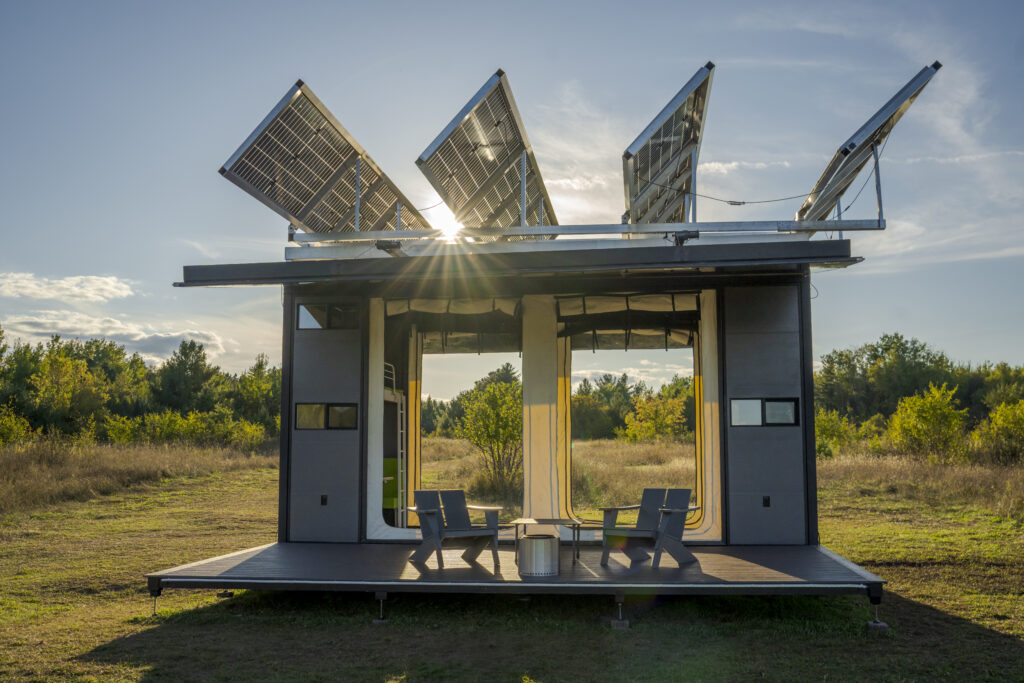
He noted that this issue was not being adequately addressed by the industry and was preventing people from accessing the outdoors in a sustainable way, particularly in terms of helping landowners open new destinations.
Based on this insight, Hjelmaker founded Electric Outdoors with a specific mission.
“I started Electric Outdoors on a pure mission to move people more sustainably to the outdoors altogether and primarily by solving the challenge of land and new destinations, helping land owners to unlock more places for us to go to,” he said.
Backed by a state grant in Michigan, the company has launched its first innovation, the EO Canopy, a self-sustained, off-grid platform designed for immediate deployment without the need for permits, infrastructure, or added development costs.
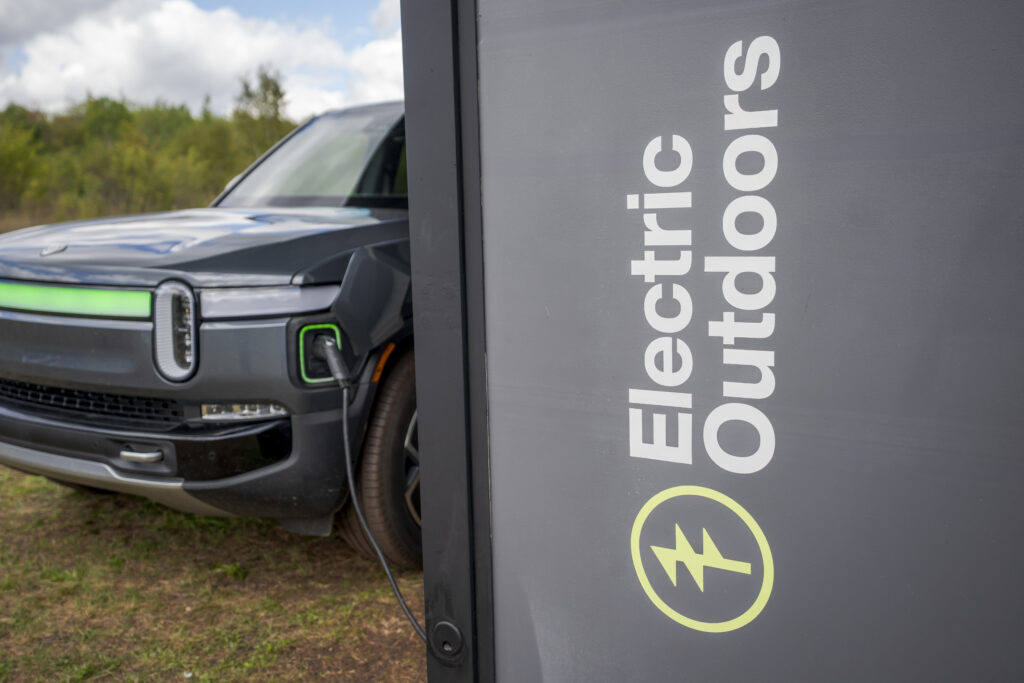
Described by Hjelmaker as a “self-sustained renewable off-grid platform that you can drop in on any piece of land,” the EO Canopy offers a plug-and-play solution for outdoor recreation and land use, powered entirely by renewable energy.
The EO Canopy also features a solar roof that tracks the sun, capturing approximately 25% more energy.
“All that energy that we’re harvesting, we’re storing that in batteries. We have about 154 kilowatt hours of energy storage in our base variant of the Canopy,” Hjelmaker said.
Hjelmaker said the stored energy supports a range of features, from charging electric vehicles and traditional campers with 50-amp and 30-amp connectivity to generating fresh water from air.
He also noted that the system includes a water generator capable of producing about 17 gallons of fresh water per day, which is stored in a 100-gallon tank, and that the energy is also used to incinerate waste.
Landowners can deploy the unit for glamping setups or RV guests. “We have cases where our canopy will serve as a base camp. You have a wonderful wet bath. You have a kitchen with cooking possibilities. You have running freshwater,” he said.
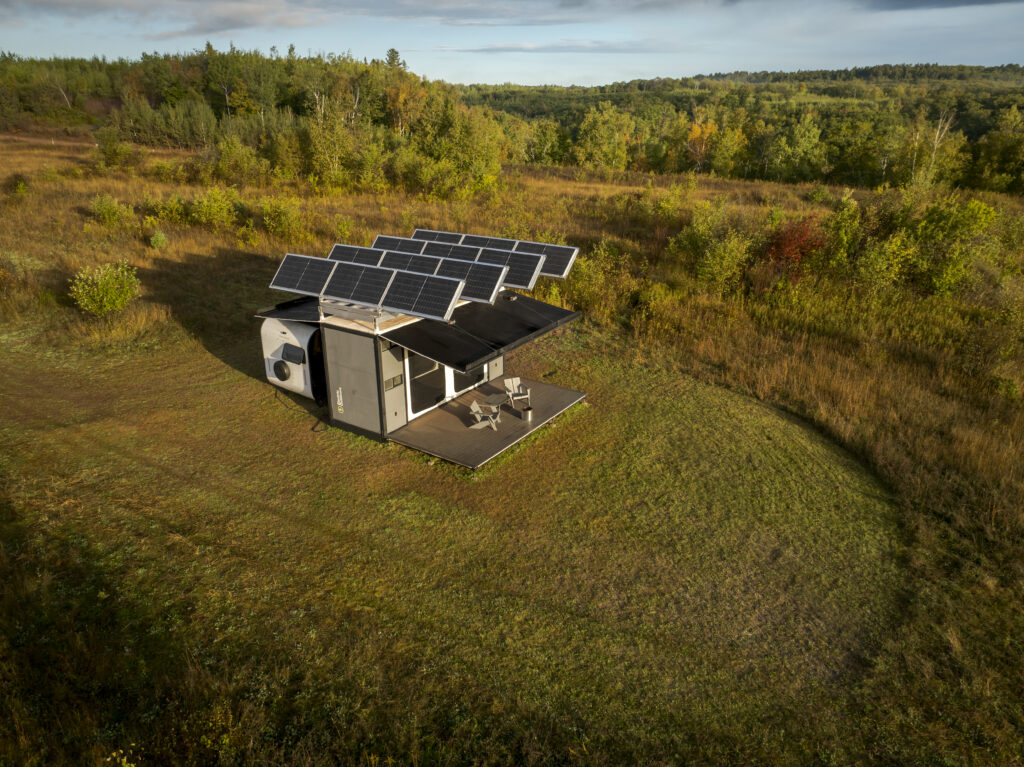
“In this base camp version, our customers will maybe hook up a few glamping tents or yurts or other experiences, sort of create this community, a little camp for people to come out and enjoy,” he told Modern Campground.
The EO Canopy also supports direct use by RV owners and travelers. “We have use cases where Class B vans or trailers come and hook up to our canopy and use it as their extended campsite,” he said. “We also have people who would just show up in their Tesla and hook up to the unit and then use the sleeping amenities in the canopy.”
One side of the EO Canopy transforms into sleeping quarters, converting from a dining area with a foldable table into a queen-size bed with a twin XL bunk above it.
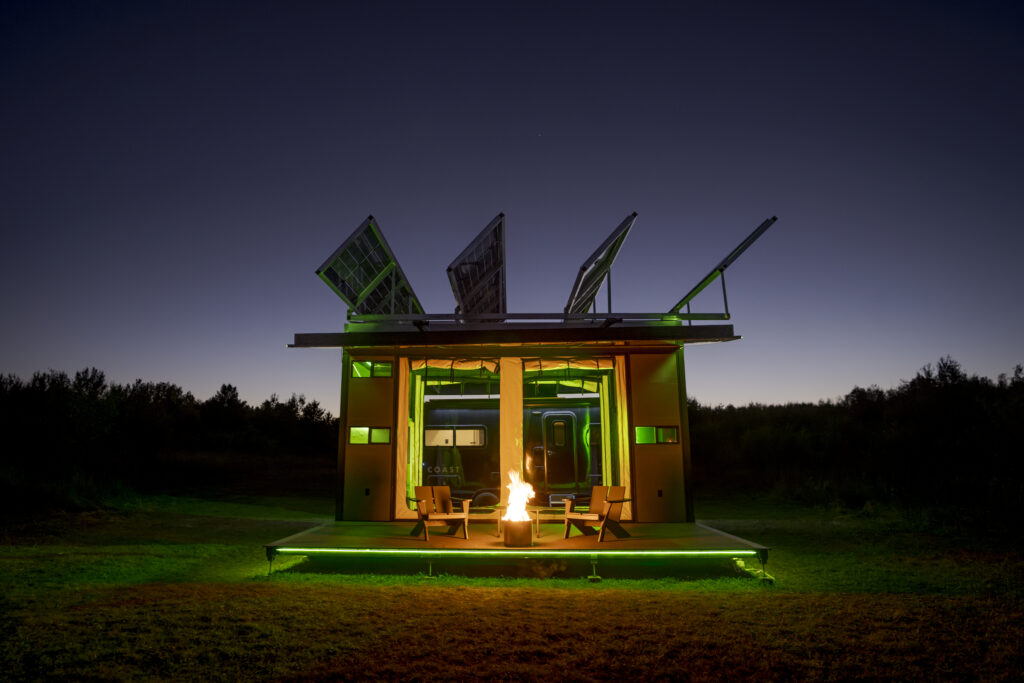
Hjelmaker explained that the company is currently focused on business-to-business (B2B) sales, primarily targeting landowners across various sectors. While the end users include consumers who engage with the platform, the company’s clients range from private landowners to public-private partnerships and outdoor hospitality operators.
“We have customers that are in the public-private partnership space… We have private land owners who are keen to unlock their land,” he said. “We have publicly traded companies like big campground operators that are looking into continuously revamping their experiences or their services to their customers.”
To support long-term use and maintenance, Electric Outdoors integrated cloud connectivity and IoT capabilities into the platform.
“We have a device on our units that merges Starlink or 5G LTE data, making sure that we’re always connected so we can always communicate with the unit itself,” said Hjelmaker.
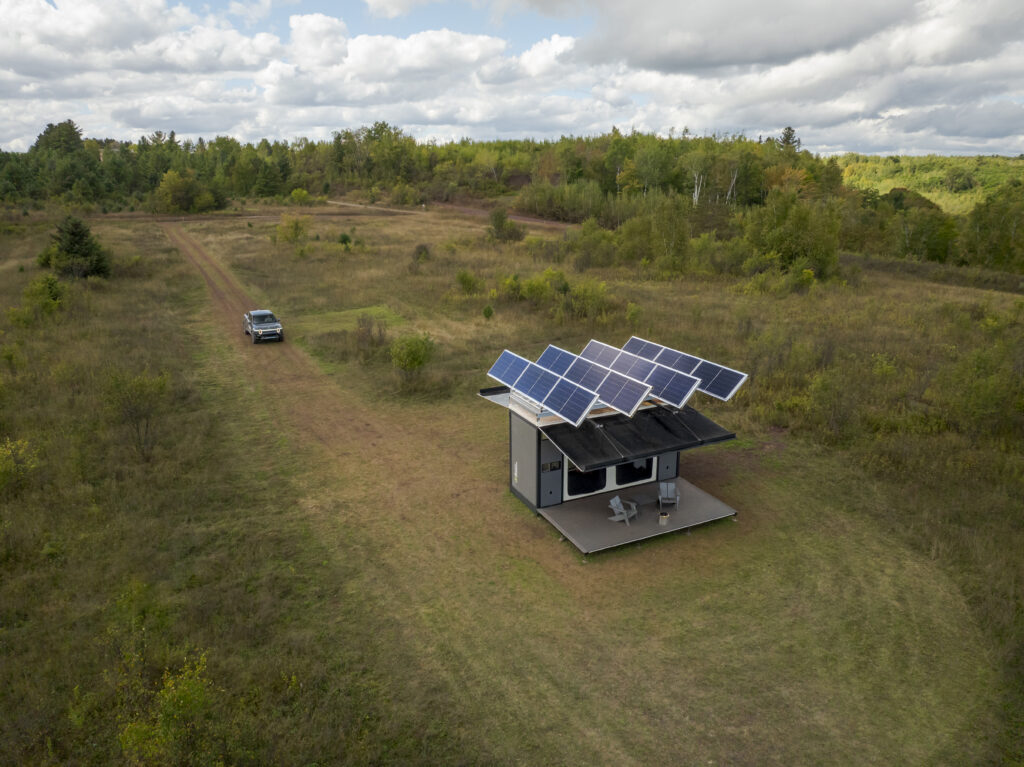
“You can pull data from the national research lab’s data sources, and you can pretty much simulate and learn the behavior on that particular location where we have dropped in our canopies.”
That connectivity enables predictive maintenance and operational adjustments.
“We are tackling a lot of these challenges proactively by having a strong cloud-connected backbone that always communicates with the user and the admins of the Canopy,” he explained. “If a big storm is coming in, we can fold our solar panels flat to ensure that we don’t capture any excessive wind or anything like that, and protecting the unit.”
While units are designed for durability, Hjelmaker acknowledged the importance of on-site support during early deployments.
“We are keen to ensure that the brand and the experience [are] something that people will really appreciate. So at the beginning, we’re absolutely going to have people that are available if any challenges or issues occur.”
Navigating Startup Challenges
Launching a startup always comes with challenges, especially in the current economic environment. Despite the hurdles, he said Electric Outdoors has been fortunate to receive strong backing from partners and investors, which helped the company advance from prototyping to piloting and into the commercialization phase.
Hjelmaker also shared that Electric Outdoors has benefited from Detroit’s unique blend of craftsmanship and manufacturing capabilities, which Hjelmaker believes are hard to find elsewhere.
While financial constraints, scalability, and technological integration have posed significant challenges, he expressed gratitude for the community support and noted that the company has moved beyond the “valley of death” stage common to startups.
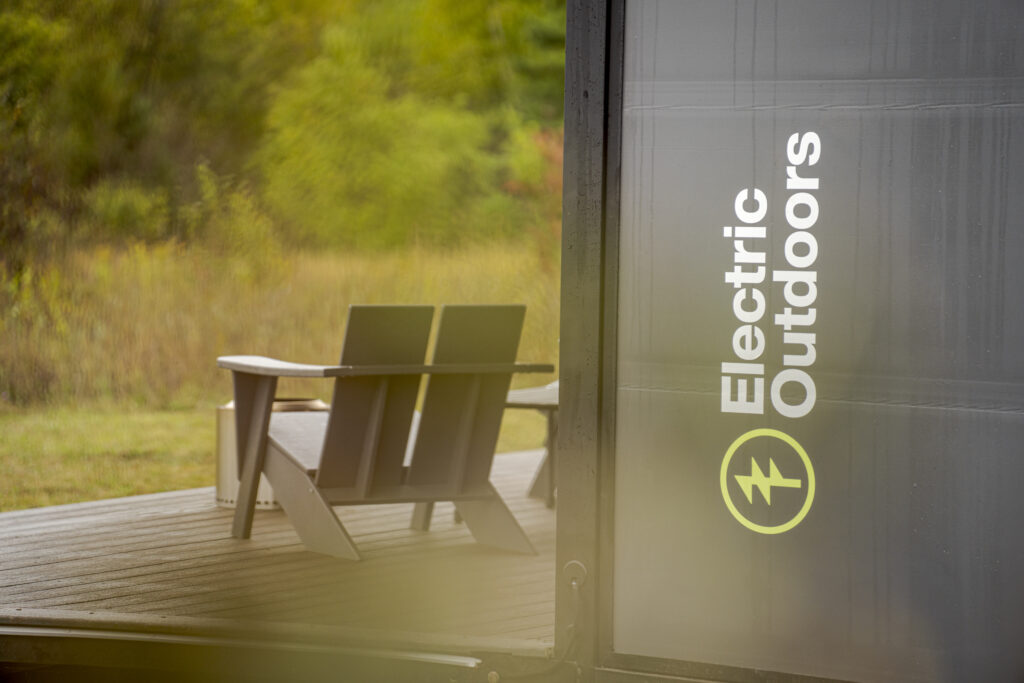
With a commercialized product now in hand and customer contracts secured, the company is focused on scaling its operations and exploring future opportunities.
Electric Outdoors is gearing up for its first commercial rollout, with plans to begin deploying its canopies for public use in 2025.
Hjelmaker said the company expects to launch with signed customer contracts in place, marking a significant step in bringing its off-grid platform to a wider audience.
A recent April 2024 report by Modern Campground and Cairn Consulting Group highlights the rising demand for sustainability in outdoor hospitality, noting that over half of campground guests feel sustainable practices improve their overall experience.
This aligns with the mission of Electric Outdoors, which aims to simplify off-grid development through environmentally responsible infrastructure.
Hjelmaker’s platform supports landowners in implementing eco-friendly solutions, such as solar energy, smart energy management, and low-impact site design, that reflect many of the report’s recommended initiatives, including energy conservation and minimal impact on the environment.
For more information about Electric Outdoors, visit their website here.

